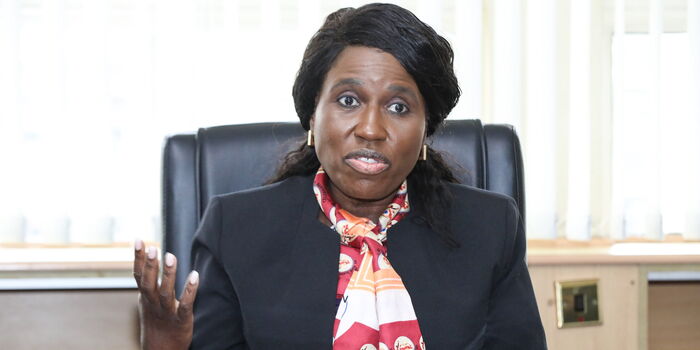PS admits flaws in halted University funding plan

The government has acknowledged difficulties in implementing the new university funding model, which has already been halted by the courts due to legal and financial concerns.
Principal Secretary for Higher Education Beatrice Inyangala on Thursday admitted that the model ran into financial constraints soon after its rollout.
She also pointed out that students provided inaccurate data when applying for funding, making it difficult to assign them to the correct financial support categories.
“The ministry conducted a survey to collect the data and found 53 percent had left their forms in the cybercafés to be filled by the staff,” Inyangala said.
According to her, this resulted in generic information that compromised the accuracy of the data needed for proper student classification.
Bribery claims also emerged in the process, with chiefs responsible for verifying students’ financial backgrounds allegedly receiving kickbacks to classify some as “most vulnerable.”
Another challenge arose from the assumption that students from national schools could afford university fees. This proved inaccurate as some were studying on bursaries.
“There was an assumption that students who attended national schools would be placed in band three. This got a challenge as some students were studying on bursaries,” she said.
President William Ruto launched the Variable Scholarship and Loan Funding (VSLF) model in May 2023.
It categorized students into five bands, with those from vulnerable and extremely needy households qualifying for full funding, while those deemed less needy could receive up to 90 percent support.
However, High Court Judge Chacha Mwita ruled last December that the model was unconstitutional and discriminatory.
“It should have been subjected to the public so the public comments before its implementation,” the court noted.
The ruling further stated that funding public universities is the government’s responsibility and shifting the burden to parents violates the Constitution.
Appearing before the Senate Education Committee, Inyangala struggled to defend the model as a solution to higher education funding. Senators demanded clarity on how student data was collected.
“How was the collection of the data done, and why couldn’t the ministry use chiefs to establish the vulnerability of the students?” Laikipia Senator John Kinyua asked.
Nyandarua Senator John Methu questioned why the model had made university education more expensive.
He noted that under the old system, students paid as little as Sh16,000, while under the new model, they now face fees as high as Sh90,000.
